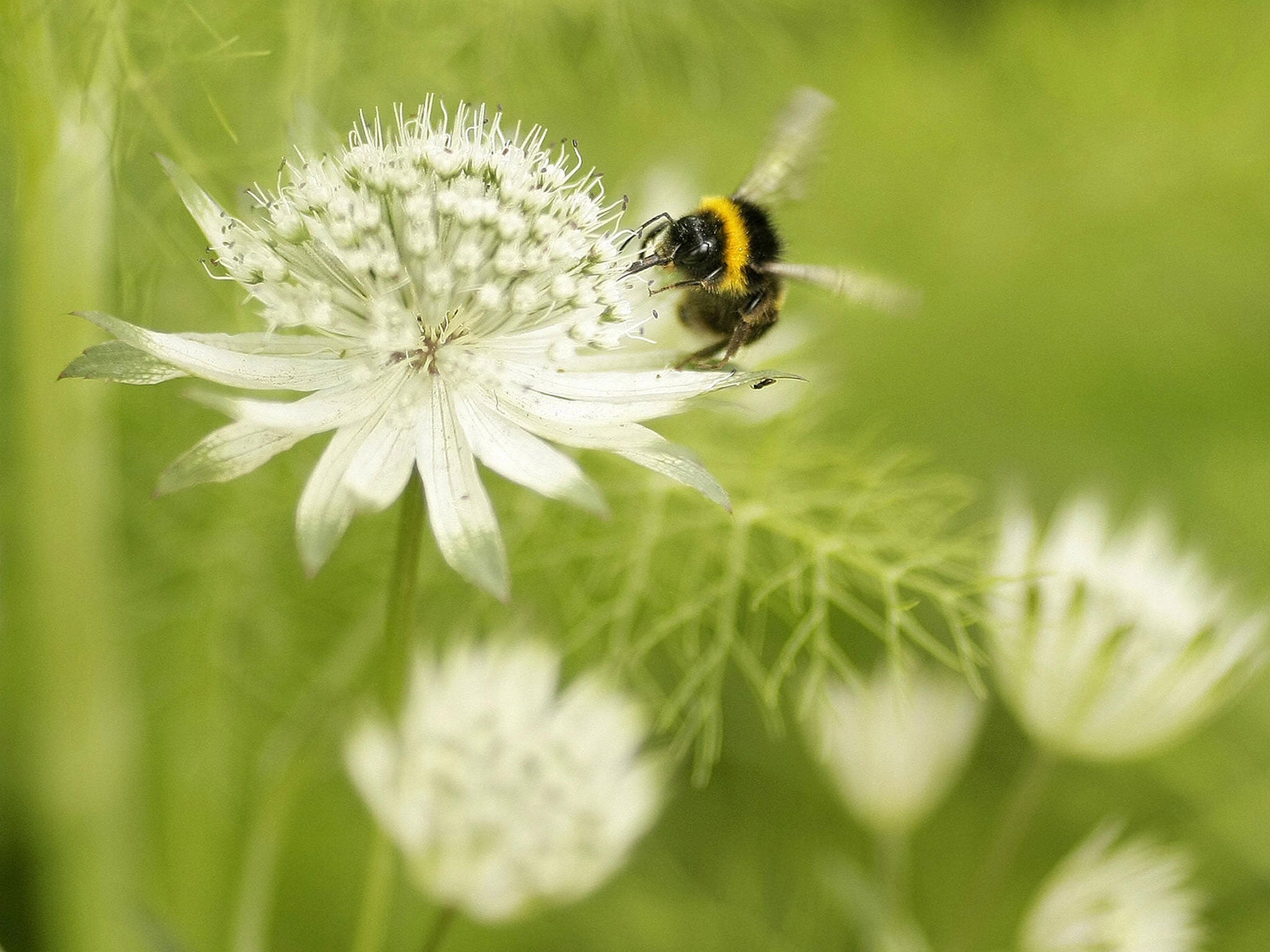No bees, no honey, no wine: Pesticides that put all nature at risk
Horatio Clare asks why the Government won't ban the worst pesticides

Your support helps us to tell the story
From reproductive rights to climate change to Big Tech, The Independent is on the ground when the story is developing. Whether it's investigating the financials of Elon Musk's pro-Trump PAC or producing our latest documentary, 'The A Word', which shines a light on the American women fighting for reproductive rights, we know how important it is to parse out the facts from the messaging.
At such a critical moment in US history, we need reporters on the ground. Your donation allows us to keep sending journalists to speak to both sides of the story.
The Independent is trusted by Americans across the entire political spectrum. And unlike many other quality news outlets, we choose not to lock Americans out of our reporting and analysis with paywalls. We believe quality journalism should be available to everyone, paid for by those who can afford it.
Your support makes all the difference.It has not been a good quarter-century for bees. The varroa mite was their first foe, which ravaged bee populations, causing hive collapse and local extinctions. One of the bees' allies then was a chemical, Bayvarol, manufactured by the German corporation Bayer AG. Bayvarol was very effective against varroa: farmers, bee keepers and perhaps bees themselves were relieved. But by an awful irony, the same company 25 years ago began the sale and distribution of neonicotinoid pesticides, which were so successful they were soon in use the world over, and helped propel Bayer to its present dominant position as one of the leading pesticide manufacturers, currently turning over £6bn annually.
Pesticide producers argue that they do God's work, or at least Adam's, in that a world without their products would be a very hungry place for us.
"By 2050, we are going to have to feed 9.2 billion people – so in the next 50 years or so we are going to have to produce as much food as humanity has produced in our entire history," says Dr Stephen Humphreys, food industry manager for Bayer Crop Science, a UK subsidiary of Bayer AG. His solution is "sustainable intensification", which means genetically modified crops, and, yes, neonicotinoid pesticides.
"We are satisfied that you do not get negative impact on bee populations if neonicotinoids are used correctly by farmers," he says.
Dr Christopher Connolly from Dundee University vigorously disagrees. His is the latest in a line of studies by British universities which, the scientists say, proves that neonicotinoids are disastrous for bees. Research at Stirling University found they caused problems for queen bees. Then Newcastle University found they damaged bees' ability to learn – and, since they rely on learning and communication to find and spread knowledge of good places for pollen, this was fatal.
Now Dr Connolly and colleagues have found that, at a "field relevant concentration" of one to five parts per billion, neonicotinoids cause epileptic-like brain activity and permanent, effectively lethal damage. As far as they are concerned, the argument is won. But the question is not "When do we ban them?" but "How do we ensure that what comes next is not harmful?" Dr Connolly says, "We need to subject all pesticides to this level of stringent testing. Government has kept no records of what pesticides farmers use, and what effects they have. Suppose we had kept no data on the effects of smoking – how would we combat its harmful effects?"
The best time to visit a hive is around 11am on a sunny morning, when all the workers will be out. Running into a bee swarm, a buzzing waterfall of thousands, may be frightening, but is not dangerous: the creatures are concentrating on other things. In South Wales, my mother and a neighbour, Mervyn Farr, who keeps bees, watched a swarm descend on an empty hive and fill it. Mum said it sounded like a pack of motorbikes. Mervyn said he had seen a couple of scouts surveying the hive a few days before – he was unsurprised and delighted that they had brought the swarm. I have been eating their honey, Cwmdu honey, which is delicious.
In Italy, where I now live, my neighbours are winemakers. In our valley, Bruno Cottini, a young manufacturer of sumptuous Agricola Cottini Valpolicella, visited all his rivals and gained universal agreement that no one should use neonicotinoids: "No bees, no wine!" he says.
With all due respect to the Government, to Bayer AG, and its lobbyists, it seems to me scientifically catastrophic and morally abominable that any pesticide which harms bees should be manufactured, sold or used anywhere on earth. Last week, though, the Government agreed to their continued use, and we can have little faith that Cameron's administration will act wisely in this matter.
We should follow Bruno Cottini's lead, approach farmers, and reject neonicotinoids for good and all. As for "sustainable intensification", one imagines Dedalus shaking his head. Technology is wonderful, he might have said, it elevates man even to the heavens. But if you fly towards the sun you will surely burn, or fall. In a world without bees, we will render ourselves extinct.
Join our commenting forum
Join thought-provoking conversations, follow other Independent readers and see their replies
Comments